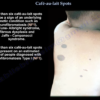

Is very flexible with what users can supply as gene_df, and can take aĭata.frame/ data.table/ tibble, (sparse) matrix, or HGNC Comparison of Orthology Predictions (HCOP), which includes predictions from eggNOG, Ensembl Compara, HGNC, HomoloGene, Inparanoid, NCBI Gene Orthology, OMA, OrthoDB, OrthoMCL, Panther, PhylomeDB, TreeFam and ZFIN It’s also worth noting that for smaller gene sets, the speed differenceīetween these methods becomes negligible.ġ9 (but cannot convert between pairs of non-human species) Helpful when you need a semi-quantitative measure of mapping quality. How many databases support each ortholog gene mapping. Orthology databases and can return a column “support_n” that tells you While "babelgene" contains less species, it queries a wide variety of In general, we recommend you use "gprofiler" when possible, as it "gprofiler", "homologene", and "babelgene" Methods, each with complementary strengths and weaknesses: method <- "homologene "įor most functions, orthogene lets users choose between different

# We generally recommend using method="gprofiler" (default).

# Setting to "homologene" for the purposes of quick demonstration.


 0 kommentar(er)
0 kommentar(er)
